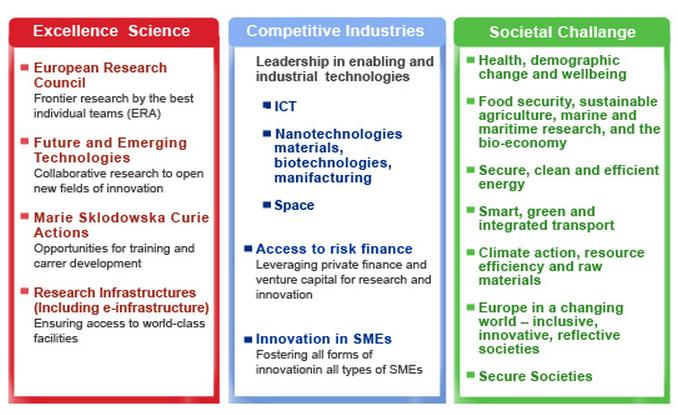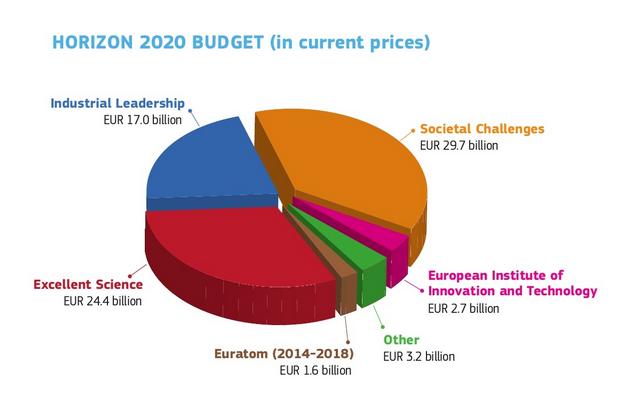The first calls for projects have been launched for the EU framework programme “Horizon 2020” for Research and Innovation, with a budget of EUR 80 billion. Universities, research institutes and companies now have the opportunity to apply for the EU funding programme, which is set to run until 2020.
Horizon 2020 is the largest publicly financed research framework programme worldwide and the third-largest financial item within the EU budget. It focusses on innovation and market proximity. A simplified financing model and non-bureaucratic procedures are designed to appeal to further potential participants such as universities, research institutes and companies. It is intended to be of particular benefit to SMEs, while the application procedures have been streamlined and research policies linked to structural support. 20 per cent of the budget is earmarked for programmes especially for small and medium-sized businesses.
Horizon 2020 is built around three pillars:
1) Support for "Excellent Science" – including grants for individual researchers from the European Research Council and Marie Skłodowska-Curie fellowships (formerly known as Marie Curie fellowships);
2) Support for "Industrial Leadership" – including grants for small and medium-sized enterprises and indirect finance for companies through the European Investment Bank and other financial intermediaries;
3) Support for research to tackle "societal challenges". During negotiations between the European Parliament and Council it was decided to support research towards meeting seven broad challenges:
1. Health, demographic change and wellbeing
2. Food security, sustainable agriculture and forestry, marine, maritime and inland water research, and the bioeconomy
3. Secure, clean and efficient energy
4. Smart, green and integrated transport
5. Climate action, environment, resource efficiency and raw materials
6. Inclusive, innovative and reflective societies
7. Secure & innovative societies
In addition, part of the Horizon 2020 budget goes towards funding the European Institute of Innovation and Technology (EIT), research activities carried out under the Euratom Treaty and non-nuclear research carried out by the Joint Research Centre, the European Commission's in-house science service.

Horizon 2020 is worth nearly €80 billion over seven years, including funding for nuclear research under Euratom. This is an increase of nearly 30 percent in real terms compared with its predecessor, the Seventh Framework Programme for Research and Technological Development (FP7). The structure of Horizon 2020 is different to FP7 and the programme encompasses the EIT and parts of the former Competitiveness and Innovation Framework Programme (CIP).

H2020 wants to attract as much of the best talent and skills as possible, and have researchers and businesses focus on their work, not filling out forms. This is why simplification has been a central goal when designing the programme. Elements to highlight include:
1. a simpler architecture which makes it easier for participants to identify where funding opportunities exist;
2. a single set of participation rules (covering issues such as eligibility, evaluation, Intellectual Property Rights, etc.) applying to all funding provided under Horizon 2020, with derogations only possible when justified by specific needs;
3. electronic signature of grants and amendments; to simplify and speed up administrative procedures;
4. simpler funding rules, with two standard funding rates, one funding rate per project and indirect costs covered by a single flat-rate (see below);
5. a reduced burden of financial controls and audits, thanks partly to the use of flat rates for indirect costs, a major source of error in the past.
For more information: http://europa.eu/rapid/press-release_MEMO-13-1085_en.htm